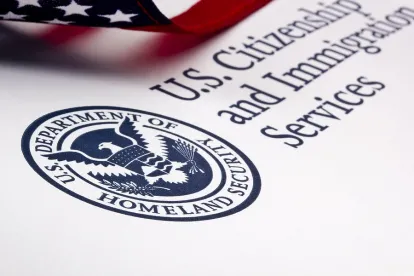In line with its focus on compliance and enforcement of existing laws, the Trump Administration has announced measures to “deter and detect H-1B visa fraud and abuse” and to protect American workers just as thousands of H-1B visa petitions are inundating USCIS Service Centers on April 3 (the beginning of the H-1B season for FY 2018).
On April 3, the Department of Justice reminded employers not to discriminate against U.S. workers, stating, “U.S. workers should not be placed in a disfavored status, and the department is wholeheartedly committed to investigating and vigorously prosecuting these claims.” Employers who discriminate against U.S. workers are those whose hiring practices favor H-1B workers. According to the DOJ, this might include a discriminatory preference for using outsourcing firms or terminating U.S. workers after they have trained their replacements who are on H-1B visas.
The same day, the USCIS announced that Fraud Detection and National Security site visits will be more targeted. The FDNS will focus on:
-
Cases where USCIS cannot validate the employer’s basic business information through commercially available data;
-
H-1B-dependent employers (companies which have a high percentage of H-1B workers as compared to U.S. workers); and
-
H-1B workers who will work off-site at another company or organization’s location.
USCIS will determine if employers might be evading their obligation to make a good faith effort to recruit U.S. workers before hiring H-1B workers if the companies are H-1B-dependent employers.
The USCIS also wants help from the public to ferret out abuse, offering an informational website, Combating Fraud and Abuse in the H-1B Visa Program, along with a robust “tip” line system to contact the enforcement agencies:
-
Individuals can submit tips on alleged violations and other information about possible H-1B fraud or abuse at REPORTH1BABUSE@USCIS.DHS.GOV;
-
Form WH-4 can be submitted to the Department of Labor’s Wage and Hour Division; and
-
Homeland Security Investigations (HIS) Tip Form can be submitted to ICE.
Earlier, on March 31, the USCIS published new guidance aimed at outsourcers and others who may be trying to bring in tech workers at lower salary ranges. The guidance suggests that computer programmer positions are not “specialty occupations” requiring at least a bachelor’s degree in a specific field and, therefore, may not be eligible for H-1B visas. While this has always been a potential issue for programming jobs, the USCIS warns employers that it will subject those applications to more scrutiny, issuing more Request for Evidence notices (“RFEs”) and requiring more specific proof that the jobs offered are high skilled and analytical. Some outsourcers claim these measures would exclude only low-skilled workers on H-1B visas, not the high-skilled workers who are in short supply in the U.S.




 />i
/>i

